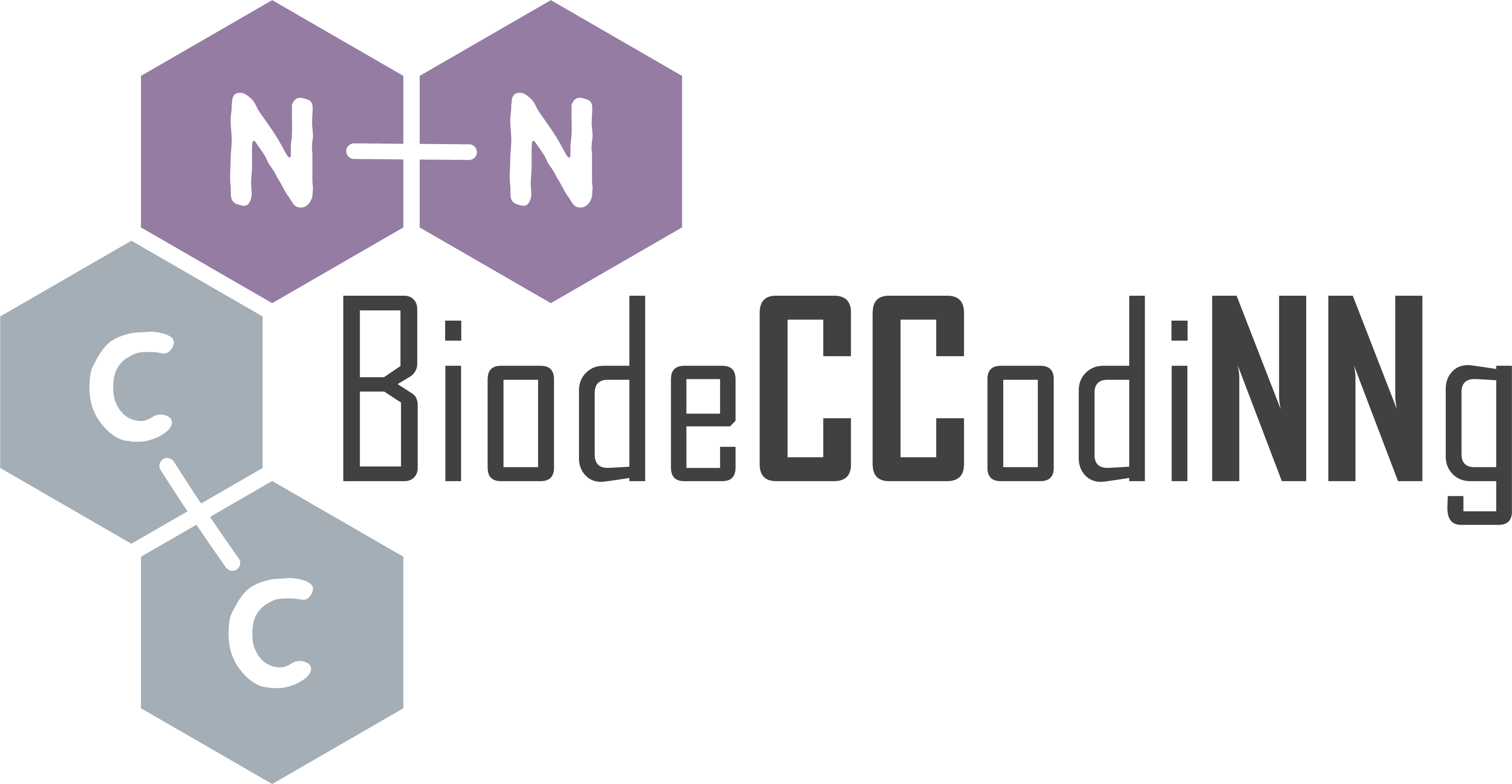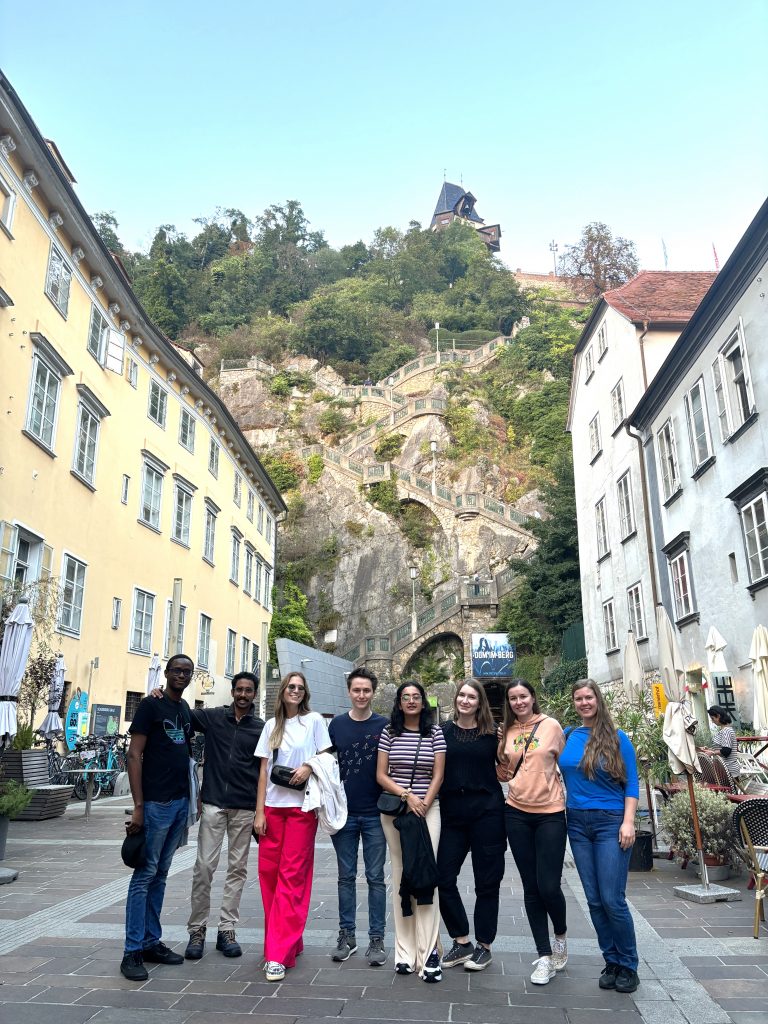Prof. Karl Gruber

Prof. Karl Gruber
(Full Professor)
University of Graz (UNI GRAZ)
Institute of Molecular Biosciences
Humboldtstraße 50
8010 Graz
Austria
Dr. Karl Gruber is the primary supervisor of DC5. Additionally, he is the work package leader of WP2 and a member of the Research Committee.
Since 2016, K. Gruber has been a Professor of Computational Biosciences at the Institute of Molecular Biosciences (IMB) at the University of Graz. He held this position already between 2009 and 2014. Since 2020, he also serves as Head of the IMB. K. Gruber studied Chemistry at the University of Graz and completed his PhD in 1995 in the group of Christoph Kratky. After his PostDoc at the Scripps Research Institute in La Jolla, CA (in the group of Ian Wilson), he returned to Austria and worked as a researcher on his own grants at the University of Graz and as a key researcher and module manager in the competence center “Applied Biocatalysis” in Graz. Between 2006 and 2008, he was an Assistant Professor at the Institute of Chemistry at the University of Graz.
Key expertise
Karl Gruber’s scientific background is molecular structural biology, and his main research interests concern the catalytic mechanism of enzymes at a molecular level and the structural determinants of protein function. Over the past years, his group has successfully employed experimental techniques (e.g., biomolecular X-ray crystallography) combined with computational methods (e.g., homology modeling, docking, molecular dynamics simulations, QM/MM, etc.). The group aims to understand essential enzyme characteristics such as substrate specificity, enantioselectivity, solubility, or stability and to exploit this knowledge to rationally design enzyme variants with tailor-made properties. Specific examples include dipeptidyl-peptidases, lipid hydrolases, and flavin-dependent enzymes. His group is also active in structural bioinformatics, focussing on predicting enzyme function using 3D patterns.
The research labs at the Institute of Molecular Biosciences (IMB) of the University of Graz (UG) harbor equipment for a vast array of integrated structural biology and biophysical approaches, e.g., a crystallization robot, thermoregulated crystallization closets, SEC-MALS detector, differential scanning fluorimeter (DSF), isothermal titration calorimetry (ITC), as well as CD and fluorescence spectroscopy. The infrastructure for biological crystallography and small-angle x-ray scattering (SAXS) has been extended with a dual-port biological single-crystal diffraction/SAXS system equipped with a highest-flux MetalJet microfocus X-ray source, state-of-the-art goniometers, and detectors. This equipment allows in-house high-resolution and high-sensitivity data collection and significantly improves the institute’s screening and structure determination capabilities. In addition, the group members are regular users of European synchrotron radiation sources (e.g., ESRF, DESY, Elettra). Ample access to high-performance computing infrastructure is provided by the IT department of the UG (CPU- and GPU-cluster) and the Vienna Scientific Cluster.
Hosting Institution
The University of Graz (UNI GRAZ), founded in 1585, constitutes one of the largest Austrian research institutions. Numerous outstanding scientists, among them six Nobel price laureates, taught and carried out their research at UNI GRAZ. Today, about 32,000 students and 4,200 employees are active at UNI GRAZ; hence, UNI GRAZ contributes significantly to the economic and social life of Graz. The University is highly recognized for its intense cooperation with national and international partners and its close contacts with industry. Furthermore, UNI GRAZ offers tailor-made training services to our researchers, as well as different internship packages (Graduate Research Scholarship; Pre-doctorate Research Scholarship, etc.).
The Institute of Molecular Biosciences (IMB) is an internationally renowned research center. It performs fundamental research on an internationally highly competitive level and offers several bachelor’s and master’s programs in molecular biosciences with a strong emphasis on research-based training. Core research areas at the IMB include energy metabolism and aging, infection biology, protein synthesis, biophysics, and structural biology. The IMB assumes a leading role in the university’s Field of Excellence “BioHealth”. It is also a member of the strategic inter-university cooperative programs NAWI-Graz and BioTechMed-Graz, which link the fields of natural sciences at the University of Graz, Graz University of Technology, and the Medical University of Graz.
https:// molekularbiologie.uni-graz.at
Contact
karl.gruber@uni-graz.at
https://molekularbiologie.uni-graz.at/en/strukturbiologie/
https://orcid.org/0000-0002-3485-9740
https://www.linkedin.com/in/karl-gruber-2a486135/
Relevant Publications
1. Gruber, K.; Csitkovits, V.; Łyskowski, A.; Kratky, C.; Kräutler, B. Structure-Based Demystification of Radical Catalysis by a Coenzyme B12 Dependent Enzyme – Crystallographic Study of Glutamate Mutase with Cofactor Homologues. Angew. Chem. Int. Ed. 2022, 61, e202208295, DOI: 10.1002/anie.202208295. 2. Pavkov-Keller, T.; Schmidt, N. G.; Żądło-Dobrowolska, A.; Kroutil, W.; Gruber, K. Structure and catalytic mechanism of a bacterial Friedel-Crafts acylase. ChemBioChem 2019, 20, 88-95. DOI: 10.1002/cbic.201800462. 3. Steinkellner, G.; Gruber, C. C.; Pavkov-Keller, T.; …; Gruber, K. Identification of promiscuous ene-reductase activity by mining structural databases using active site constellations. Nat. Commun. 2014, 5, 4150. DOI: 10.1038/ncomms5150. |







